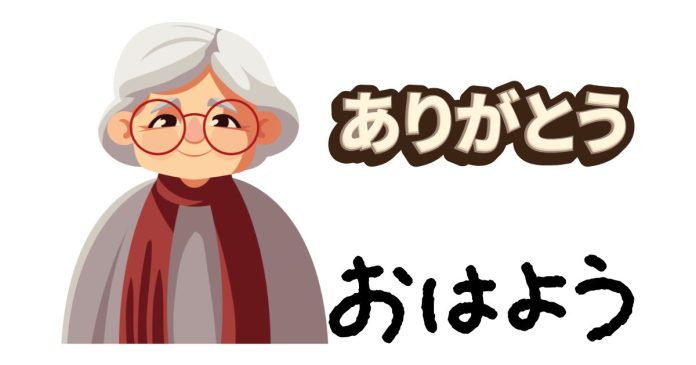In many cultures, the word for “grandmother” holds a deep sense of respect and affection, and the Japanese language is no different. If you’re curious about the Japanese word for grandmother, you’ve come to the right place! This post will explain the different terms used in Japanese for grandmother, as well as their nuances and cultural significance.
The Most Common Japanese Word for Grandmother
The most commonly used word for grandmother in Japanese is おばあさん (obaasan). This term is widely understood and used by people of all ages.
- おばあさん (Obaasan): This is a polite and neutral term used to refer to one’s grandmother or to address elderly women in general. It’s similar to the English “grandmother” but can also be used to describe older women who are not necessarily one’s relative.
For example:
- 私のおばあさんはとても優しいです。
(Watashi no obaasen wa totemo yasashii desu.)
“My grandmother is very kind.”
Other Variations and Terms for Grandmother
While おばあさん is the most common term, there are a few other ways to refer to a grandmother, depending on the situation or level of formality:
おばあちゃん (Obaachan)
This is a more affectionate and informal version of “obaa-san.” It’s often used by children when speaking to or about their grandmothers, much like the English terms “Granny” or “Nana.” This version conveys warmth and closeness.
- おばあちゃん (Obaachan) is often used in casual, loving settings.
Example:
- おばあちゃん、ありがとう!
(Obaachan, arigatou!)
“Thank you, Grandma!”
祖母 (Sobo)
This word is more formal and is typically used in written language or in a respectful context, such as when referring to a grandmother in an honorific way. 祖母 (sobo) is the standard term for “grandmother” when talking about one’s family in more formal conversations or in traditional settings.
Example:
- 私の祖母は日本に住んでいます。
(Watashi no sobo wa Nihon ni sundeimasu.)
“My grandmother lives in Japan.”
おばあさん (Obaasan) vs. おばあちゃん (Obaachan)
The difference between おばあさん (obaasan) and おばあちゃん (obaachan) is subtle. The first is slightly more formal, while the latter is more affectionate and casual. Both are used depending on the relationship and level of familiarity.
Cultural Significance of Grandmother in Japan
In Japanese culture, grandparents, particularly grandmothers, hold a special place in family life. They are often seen as wise and nurturing figures who play an important role in the upbringing of children. Grandmothers in Japan are respected for their life experiences, and their guidance is often sought by younger generations.
Grandmothers are also central figures in family gatherings, where they are often seen sharing stories, preparing meals, or caring for younger family members. Using a respectful term like おばあさん (obaasan) or the affectionate おばあちゃん (obaachan) reflects the deep respect and love for family elders in Japanese culture.
So, the Japanese word for grandmother can be おばあさん (obaasan), おばあちゃん (obaachan), or 祖母 (sobo), depending on the context and the level of formality you wish to express. Each term carries its own nuance, from the respectful and polite おばあさん to the more casual and affectionate おばあちゃん. Understanding these variations can help you connect with the language and culture on a deeper level.
What’s your favorite word for grandmother? Does it vary by culture or language? Let us know in the comments below!


